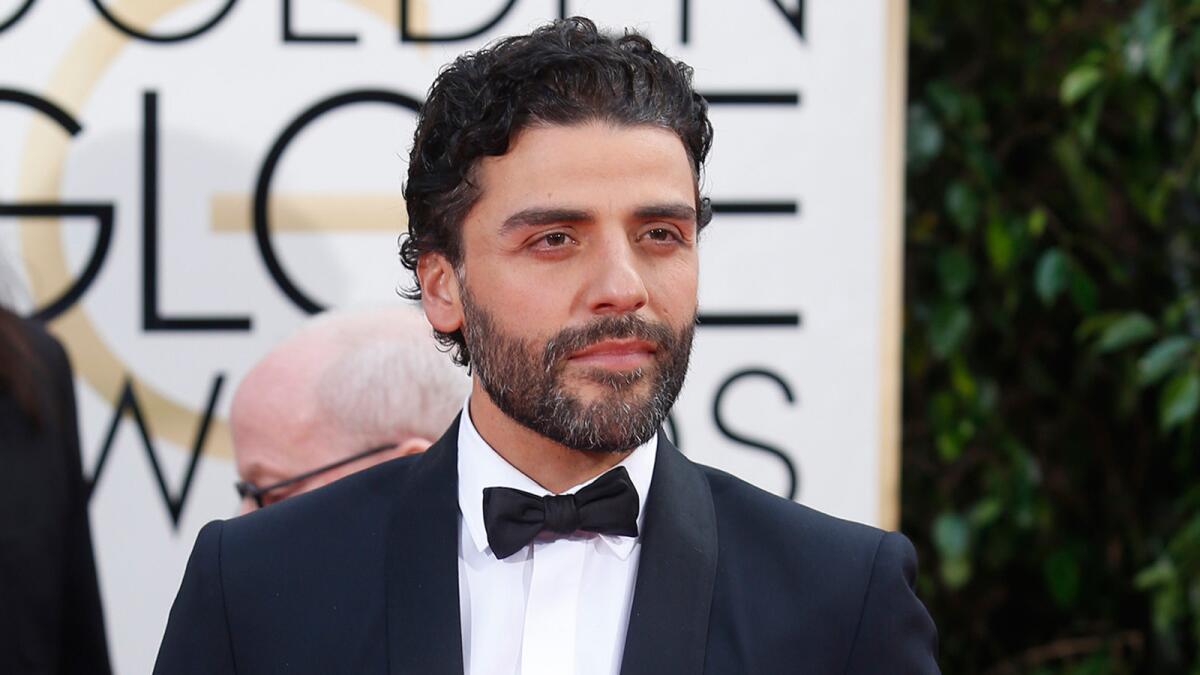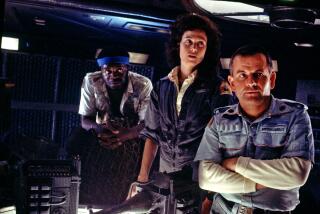Oscar Isaac gets his supervillain on for âX-Men: Apocalypseâ

If you were casting a supervillain in a comic-book movie, odds are Oscar Isaac wouldnât be the first person youâd think of. Until he broke out to worldwide fame last year in âStar Wars: The Force Awakensâ as ace pilot Poe Dameron â a guy squarely on the light side of the Force â Isaac was best known for his work in heady, small-scale fare like âInside Llewyn Davis,â âA Most Violent Yearâ and âEx Machina.â
But when director Bryan Singer approached Isaac about taking on the role of an ancient, all-powerful mutant in âX-Men: Apocalypse,â opening Friday, the actor jumped at the chance. Speaking by phone recently from Britain, where he is shooting âStar Wars: Episode VIII,â Isaac, 37, talked through how he got into the proper head space to play a fearsome baddie bent on global destruction.
When Bryan Singer first came to you about playing the newest X-Men villain, what did you hook into about the idea?
It was definitely a leap of faith because there wasnât a script yet. But I was interested in not only the comic part of it but the actual biblical inspiration. [Comic book writer] Louise Simonson, who came up with Apocalypse originally, used all this imagery from the Book of Revelation, like the Four Horsemen. For me, having grown up with a lot of these things, I had kind of gotten obsessed with the Book of Revelation because it was so hallucinogenic and trippy and scary. I thought it would be fun to really go into that language.
One of the things I found researching was that the word âapocalypseâ doesnât actually mean âdestructionâ or âthe end of the worldâ â it means âto reveal, to lift back the curtain.â So thatâs something that we ended up using in the script a lot: that Apocalypse was going to reveal the true strength of everyone, particularly his Horsemen â whether Storm is actually a true goddess or Magneto has only used a little bit of what heâs capable of.
Apart from the biblical part of it, I used cult leaders as inspiration. One of the things that I talked to Bryan about a lot was the documentary âThe Source Family,â about Father Yod. I thought he was such an incredible figure.
That was part of the process that I really enjoyed: coming up with a sound philosophy for the villain to have, something that was a little more specific and nuanced than just destruction.
Bryan said you two would trade certain songs back and forth for inspiration of how to approach the character.
Yeah, âWhen the Man Comes Aroundâ by Johnny Cash was the first one. And âBoy in the Bubbleâ by Paul Simon was another great one for me. That was a fun way to get into the tone of the guy.
From a performance standpoint, it was anything but naturalistic â it was closer to kabuki and Greek theater. What is a being that can transfer his consciousness through the ages? How does he behave? How does he speak? It was fun to explore how wild we could go with that.
How did you find that line without going over the top?
There are obvious ways you can go with this, but I played with a lot of different ideas. In the movie, Apocalypse wakes up and he speaks this ancient Egyptian language and part of his process is learning a new language. At first I thought maybe he would sound like a newscaster, like Peter Jennings or something, because thatâs what he would have heard. But that kind of took it to a place that was maybe a little too humorous. [laughs] So we kind of moved back from that and I went back to a bit more of a classic mid-Atlantic sound.
How long a process was it to get into the suit and the makeup?
At first it was a few hours, but the team I had were so good that by the end of it we were down to maybe an hour. It was like a pit crew. The suit weighed about 40 pounds, and it had a cooling mechanism underneath it because otherwise Iâd die of heat stroke. Meditation became very important because sometimes Iâd be sweating into my ears and I couldnât reach them because of all the makeup. I just had to Zen out a little bit.
The fact that we didnât go with a full CG thing, that I actually got to wear that suit and put on that makeup and try to express through that, as challenging as it was â hopefully what it does is it creates something specific and idiosyncratic.
Twitter: @joshrottenberg
More to Read
Only good movies
Get the Indie Focus newsletter, Mark Olsen's weekly guide to the world of cinema.
You may occasionally receive promotional content from the Los Angeles Times.








